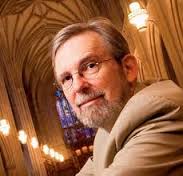10) I would like to suggest a dictum, and get your reaction— No backward reading of the OT that violates or contradicts a forward reading of the meaning in the OT text is found in the NT. Yes, or no?
***Here, Ben, I think you are “leading the witness.” I have not made an argument for the dictum that you suggest. It is such a broad generalization that I would hesitate to affirm it without a great deal more careful and comprehensive study than I have been able to do. Certainly there are places where the NT explicitly cites and overturns an OT text (e.g. Matt 5:38-39) or articulates a tension or contradiction within the OT (e.g., Gal 3:11-12). The latter looks like an instance of figural reading of Hab 2:4 that substantively contradicts Lev 18:5. This is of course a notoriously hard case, and I’m not sure it is an example of the sort of thing you mean.
11) It has become a commonplace in Lukan scholarship that while in the narrative framework of his Gospel Luke regularly uses ‘Christian’ language about Jesus, calling him Lord, however on the lips of the characters in the drama he does not do this, so as to avoid historical anachronism. This conclusion comports with other indications
that Luke is not operating like the other Gospel writers. He is writing as an ancient historian rather than as a biographer of Jesus in his first volume.
How then would you respond to this assessment, bearing in my mind that the use of kurios in texts like Lk.1.43 or 2.11 might either support your conclusion, or might be taken to mean that kurios is used in a sub-Christian way in those passages? I especially ask this question because regularly what kurios means when applied to Jesus in the NT is ‘the risen Lord’ and obviously, he was not ‘the risen Lord’ before the resurrection. What Phil. 2 suggests is that he got the title of ‘Lord’ with a capital L as a result of his being raised from the dead. Granted, this is not about a change in ontology, but rather a change in role and status, but still there was definitely a change in role and status from before and after Easter when it comes to Jesus. This is why in Mt. 28 it is the risen Jesus who says ‘all authority has been granted to me’, etc. and why in Luke Jesus cannot dispense the Spirit to the disciples until he ascends on high. As you yourself have observed, Luke is cautious not to suggest Jesus was worshipped by his disciples prior to the resurrection (p. 69).
***Here again, I refer the reader to the important work of one of my Duke colleagues: C. Kavin Rowe, Early Narrative Christology: The Lord in the Gospel of Luke. He deals extensively with these questions. I would add only this: Luke is not just writing as a “historian.” He is an evangelist, and he is narrating a story skillfully. Careful reading of the story will compel the reader to reckon with complexity, ambiguity, and foreshadowing in Luke’s use of the kyrios title.
A similar sort of query could be applied to your reading of theos texts like Lk. 7.16, where you are assuming that the great prophet=the great God, rather than that the term God here refers to Yahweh, and NOT to Jesus the prophet. Historically speaking of course, if this utterance actually was made by an early Jew, it is entirely unlikely that they would have been proclaiming that Jesus is God=Yahweh. God visited his people in and through Jesus the great prophet is what they would have meant if they said it.
***I assume you are referring here to my discussion on p. 67? My treatment here is very brief and condensed (remember that my book is the published version of a series of public lectures), but I would not disagree at all with what you say here. This is an instance of narrative irony, in which characters in Luke say something that points to more than what they understand. Here, the crowd of course simply means that Jesus has done a great sign, like Aaron and Moses in Exodus 4:27-31. But their statement that “God has visited his people” evokes another level of meaning of which they are not aware. Compare the words of the Emmaus road travelers in Luke 24:19-21.
And this brings us to a very crucial point—- suppose I were to say to you ‘nothing can be theologically true that is at the same time historically false’, since Christianity is an historical religion which does not do theology at the expense of history. How would you respond?
***Again, Ben, you are asking for a blanket declaration of a hermeneutical generalization. My working method is more inductive, seeking to work into the texts themselves. I am sympathetic to the affirmation that Christianity does not/should not “do theology at the expense of history.” But surely theology always interprets history, and that means that the category of “historical religion” requires nuancing and specification. I would say that are many instances (including Luke 7:16), where the Evangelists’ retrospective theological readings disclose multiple or hidden senses of traditional accounts of past events.












